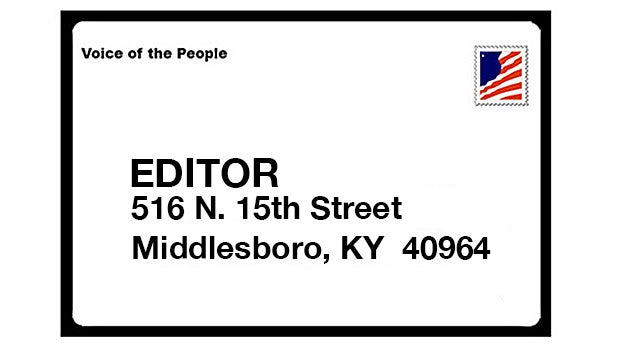Treatment by the book
Published 12:24 pm Friday, July 5, 2019
I read with interest the article published in the June 24, 2019 issue of the Middlesboro Daily News entitled “Public member concerned over alleged clinic actions.” In the article, Angela Jackson is quoted as having made several negative comments regarding the treatment of pregnant women with opioid use disorder at the ARH Women’s Health Center. It is my impression that the negative comments were made due to a lack of information. It is my sincere hope that the information presented here will help.
It is true that the Department of Obstetrics & Gynecology at the University of Kentucky Medical Center has received grant funding to help determine best practices for treatment of pregnant women with opioid use disorder. It is also true that the Middlesboro ARH Women’s Center has been selected as a partner site. It is an honor and privilege for our women’s center to be selected as a partner in this very important endeavor.
Ms. Jackson is quoted as saying, “…this is a heinous thing to do an experiment on pregnant women.”
It is important to note that the purpose of this study is to determine if additional interventions, such as group counseling sessions, improve outcomes over Suboxone therapy alone. There already exists a large body of scientific evidence demonstrating the benefit of Suboxone therapy.
The following is a direct quote from the leading authority on obstetrical practice in the United States: “For pregnant women with an opioid use disorder, opioid agonist pharmacotherapy (i.e. Suboxone) is the recommended therapy and is preferable to medically supervised withdrawal because withdrawal is associated with high relapse rates, which lead to worse outcomes.” (American College of Obstetricians & Gynecologists Committee Opinion #711, 2017).
Ms. Jackson is also quoted as saying, “… mothers can be arrested and the baby can be taken away because it is illegal for a pregnant mother to take Suboxone. This statement is false. It is entirely legal for specialized health care providers with the required training to prescribe Suboxone to a pregnant woman, and it is entirely legal for a pregnant woman to take Suboxone so long as it is taken as prescribed.
Opioid use is truly a national, if not worldwide, epidemic. With the increase in opioid use in the general population we have seen a similar increase in the number of pregnant women who enter pregnancy addicted to narcotics. As obstetrical care providers, we could choose to turn a blind eye to the problem adopting a “don’t ask, don’t tell” approach. Some choose that route. It would make our lives easier as providers. However, pregnancy offers an important opportunity to identify and treat women with opioid use and studies demonstrate that “treatment of pregnant women with opioid use and opioid use disorder improves maternal and infant outcomes” (American College of Obstetricians & Gynecologists Committee Opinion #711, 2017). So for the benefit of both mother and baby, we seek to identify these women.
After identifying pregnant women with opioid use, we could choose to refer all of them to a maternal-fetal medicine “high-risk OB” specialist for treatment. Again, this would make life easier for us. The problem is, it would make life much more difficult for these women. The nearest maternal-fetal medicine specialist is in Knoxville, Tenn. but most of our patients would be required to travel to Lexington due to insurance coverage. Either way, the extra time, expense, and hassle would add a significant burden to receiving care.
Many of us don’t question if our car will get us to Knoxville or Lexington, or wonder if we have enough gas money to get us there and back. But for many of our patients, securing reliable transportation to and from Knoxville or Lexington is anything but easy. We are convinced it is in the best interest of both mother and baby to treat these women locally.
To me, the most troubling quote from Ms. Jackson is this one, “… if you choose to have that baby and you choose to take those drugs, your rights end where that baby’s rights begin.” I certainly agree that drug abuse destroys lives, destroys families, and the innocent suffer along with the guilty. I certainly agree that people, pregnant or not, should not abuse drugs. But, I don’t think we should give up on mom. Let’s help her, not shame her.
I do not know what it is like to be addicted to narcotics. But, I do know what it is like to have made decisions I regret and to need help cleaning up the mess I have made. Fortunately for me, I know what help feels like. I know what forgiveness feels like. It feels precious.
There is a well-known parable told in the 10th chapter of Luke’s gospel about a man who was beaten, robbed, stripped and left for dead. He was beaten so badly that he couldn’t walk. If someone didn’t help him, he would lie there until he died. The first two people who saw him passed by on the other side of the road. Perhaps they thought he probably deserved the condition he was in. Perhaps they knew helping this man would require getting their hands dirty. For whatever reason, they chose not to help.
But a third man went to him, bandaged his wounds, provided his transportation, and provided his lodging until the injured man was healed. We know this third man as the Good Samaritan. The parable ends with this command, “Go and do likewise.”
Respectfully,
John Williamson, MD





